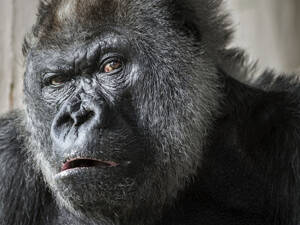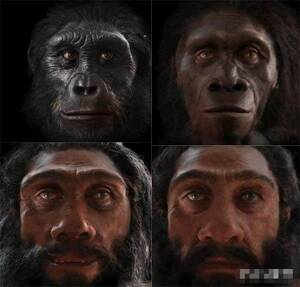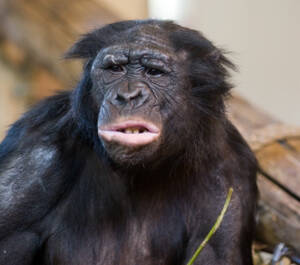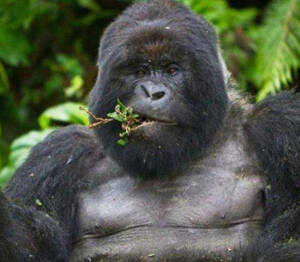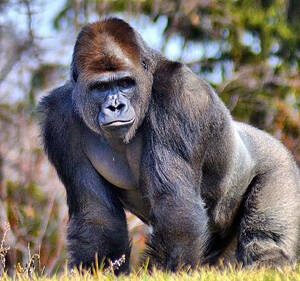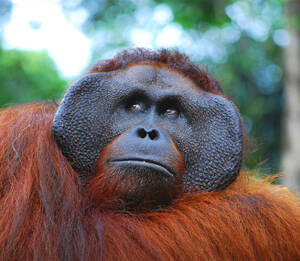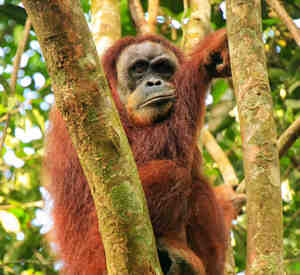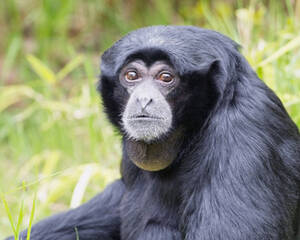Mandrillus leucophaeus
IUCN
LCBasic Information
Scientific classification
- name:Mandrillus leucophaeus
- Scientific Name:Mandrillus leucophaeus,Drill,Black-faced mandrill
- Outline:Primates
- Family:Cercopithecidae Mandrill
Vital signs
- length:51-76.4cm
- Weight:11.5-25kg
- lifetime:28-46years
Feature
Similar in appearance to the mandrill, except that its face is not as colorful.
Distribution and Habitat
Distributed in Cameroon, Equatorial Guinea (Bioko), Nigeria.
Mandrills live in lowland forests, coastal and river forests in western Africa, preferring rocky hills.
Appearance
There are huge differences between male and female drills. The size of male drills is almost twice that of females. The average weight of females is 11.5 kg, while that of males is 25 kg. The body length of males is 610-764 mm, while females are about 10 cm shorter than males.
The drill has a raised nose bone, a prominent snout, strong jaws, 32 teeth, and nostrils facing forward and downward. Both hands and feet have 5 fingers and toes with flat nails that can stand upright. Compared with mandrills, drills do not have colored facial skin. Except for the bright red lower lip, the entire face is black. Males have white beards on their chins. Because the blood vessels in the buttocks are increased, they are red. For males, the genitals are also blue or purple.
Details
Drill (Scientific name: Mandrillus leucophaeus), also known as Drill in English, is one of the most endangered primates in Africa.
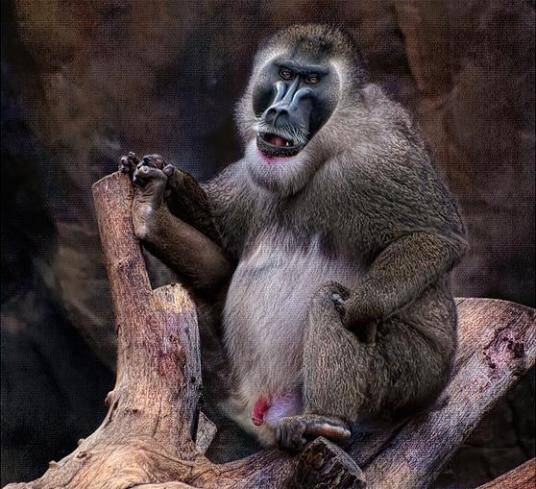
Drills usually have about 20 members per group, usually led by a strong male. When food is sufficient, the group may even exceed 100. They move on the ground during the day, and also go up trees to sleep or look for food. They live in groups, with a few to more than 50 members in each group. The leading old male monkey is strong and brave, with long and sharp teeth, which are threatening to all kinds of enemies.
The communication between the drill baboons is mainly through sound, smell, and hair color. The different smells secreted by the scent glands on the chests of the drill baboons and mandrills can be used as marking branches; mothers and children, and partners usually communicate through touch, and the same kind often make grunts and screams, but the purpose of these sounds is unclear, but it is known that this is the most important way of communication between drill baboons.
The drill baboons are omnivorous animals, feeding on fruits, insects, frogs, lizards, mice, etc.
Drills are monogamous. The peak birth period of drills is from December to April. The gestation period of females is 168-179 days. Each baby is born with one cub, and the average weight of the cub is about 770 grams. Sexual maturity is about 3.5 years old. The average life span of artificially raised drills is 28 years old, and the highest life span record is 46 years old.
The rapid and severe destruction of tropical rainforests in equatorial Africa and the increasing hunting by humans have caused the number of drills to drop by more than 30% between 1986 and 2006. By 2006, the number in Bioko was less than 5,000.
Listed in the CITES I level protected animals of the Washington Convention.
Listed in the World Conservation Union (IUCN) ver 3.1 2008 - Endangered (EN)
Listed in Appendix I, Appendix II and Appendix III of the Convention on International Trade in Endangered Species of Wild Fauna and Flora (CITES) 2019 Edition.
Protect wild animals and eliminate game.
Maintaining ecological balance is everyone's responsibility!

